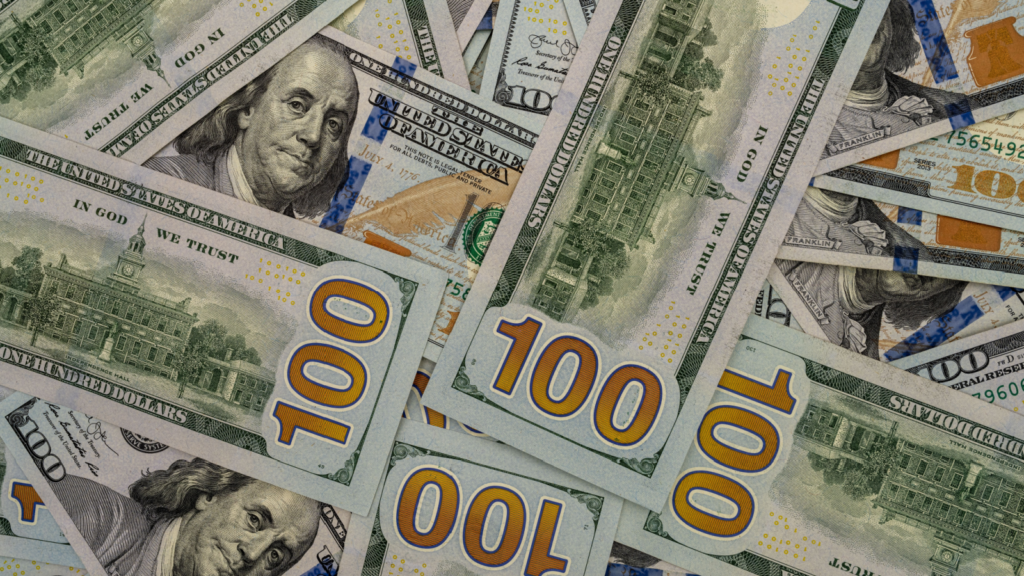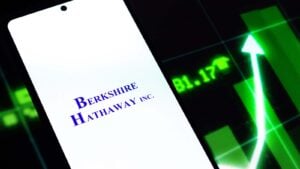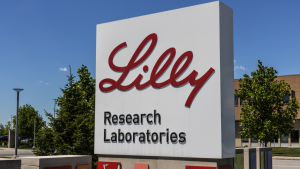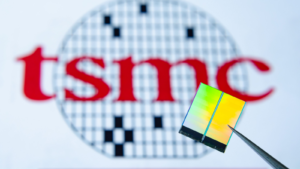
There are only six trillion-dollar stocks worldwide, every one of which is a popular name. And they all rightfully sit at the top of their sectors.
There’s a certain allure to reaching $1 trillion, and investors are always looking for the next one to breach that valuation. Yet, achieving that kind of market cap requires expert management, multiple and growing revenue streams. Additionally, it demands a realistic, overarching vision of the company’s development in the short and long term.
Luck and the occasional massive swings in market sentiment and investor interest indeed play a part in increasing valuations. Putting those aside, though, a handful of companies have the potential to join the list of trillion-dollar stocks, either through solid financial foundations, sheer market dominance, or a reputation as a reliable provider for a burgeoning sector.
Let’s talk about the next trillion-dollar stocks and the reasons you should consider investing in them now.
Berkshire Hathaway Inc. Class B (BRK-B)

Berkshire Hathaway (NYSE:BRK-B) is an excellent example of the benefits of diversification. This multinational holding company’s primary focus is insurance (divided into underwriting and investments). And it has interests in many industries and markets, including railroad, energy, gas station chains, retail supplies, and manufacturing. Most importantly, Warren Buffet, arguably the most popular investment investor of the 21st century, heads it up.
After ending 2022 at a net loss, 2023’s year-end report is a breath of fresh air for the company. Insurance revenue grew 5%, while revenue from all the other segments and markets nearly doubled year over year (YOY). Meanwhile, the most significant turnaround came from investment and derivatives, which recorded a $74.86 billion gain from last year’s $67.89 billion loss.
This success hasn’t gone unnoticed by the larger investing public. In fact, shares of BRK-B peaked at an all-time high of $430 on February 26, 2024, bringing its total valuation to more than $900 billion. Currently, the company is the closest one to breach the $ 1 trillion mark. This could be a novel development, as Berkshire Hathaway would be the first non-tech U.S. company to join the $1T club.
In his annual letter to investors, Warren Buffet tempered expectations about massive growth in the short term. However, he had no reservations in expressing his company’s resiliency.
“I believe Berkshire can handle financial disasters of a magnitude beyond any heretofore experienced,” he stated, outlining the company’s strong financial position and many diversified investments.
BRK-B’s financial statement backs up his claim, having a record $167.64 billion in cash and cash equivalents in 2023, including short-term investments in U.S. Treasury bills.
“Berkshire,” Buffet said, “is built to last.”
Eli Lilly and Company (LLY)

Eli Lilly and Company (NYSE:LLY) is currently the most valuable pharmaceutical company in the world, boasting a market capitalization that exceeds $750 billion. While mostly known for diabetes and clinical depression medication, the company offers more than 50 different drugs to the global market.
LLY’s latest report showcased an impressive $2.19 billion revenue growth to $2.49 billion from new products, primarily led by Mounjaro and Zepbound. This represents roughly 26% percent of its total revenue. Additionally, quarterly revenue ended at $9.35 billion, representing a 28% growth YOY. Meanwhile, GAAP EPS came in flat with analyst expectations, ending at $2.42, or a 13% YOY increase.
As mentioned, one of its most notable products is Zepbound, a weight-loss injection that got massive coverage upon its recent FDA approval. So far, the drug has generated $175.8 million in its first selling quarter, with more growth foreseen as LLY accelerates production and distribution.
Like the company itself, analysts are confident about Zepbound’s prospects. Morgan Stanley expects $2.2 billion in revenue for 2024, while Bank of America laid out a more optimistic $2.7 billion. Other notable drugs are Verzenio, which recorded the highest quarterly dollar value growth YOY, and Tyvyt, which nearly doubled in revenue. With such a high potential for growth, many investors think that LLY is about to join the list of trillion-dollar stocks.
Taiwan Semiconductor (TSM)

The pandemic chip shortage during Covid-19 was a curious event.
Chip manufacturers like Taiwan Semiconductor (NYSE:TSM) saw their market caps balloon as investors flocked to take a piece of the massive shortage demands.
TSM breached the $700B mark in 2022, but soon prices fell back. Yet, they remained well above their pre-pandemic levels. Now, prices are approaching their pandemic highs, and TSM’s market cap is around $656 billion.
One of the biggest reasons I’m bullish on TSM reaching trillion-dollar stock status is its client base. The company mass-produces integrated circuits for Broadcom (NASDAQ:AVGO), Intel (NASDAQ:INTC), Qualcomm (NASDAQ:QCOM). More important clients include the trillion-dollar companies of Apple (NASDAQ:AAPL) and Nvidia (NASDAQ:NVDA). Furthermore, TSM’s 3-nanometer N3 chips are the de facto leader in the industry. The company is gearing up to produce 2nm N2 chips, expected to arrive in 2025.
The chip shortage may be over, but the accelerating demand for AI is still driving growth in the tech sector. TSM anticipates a 20% revenue increase in 2024 as a result.
On the date of publication, Rick Orford did not have (either directly or indirectly) any positions in the securities mentioned in this article. The opinions expressed in this article are those of the writer, subject to the InvestorPlace.com Publishing Guidelines.




